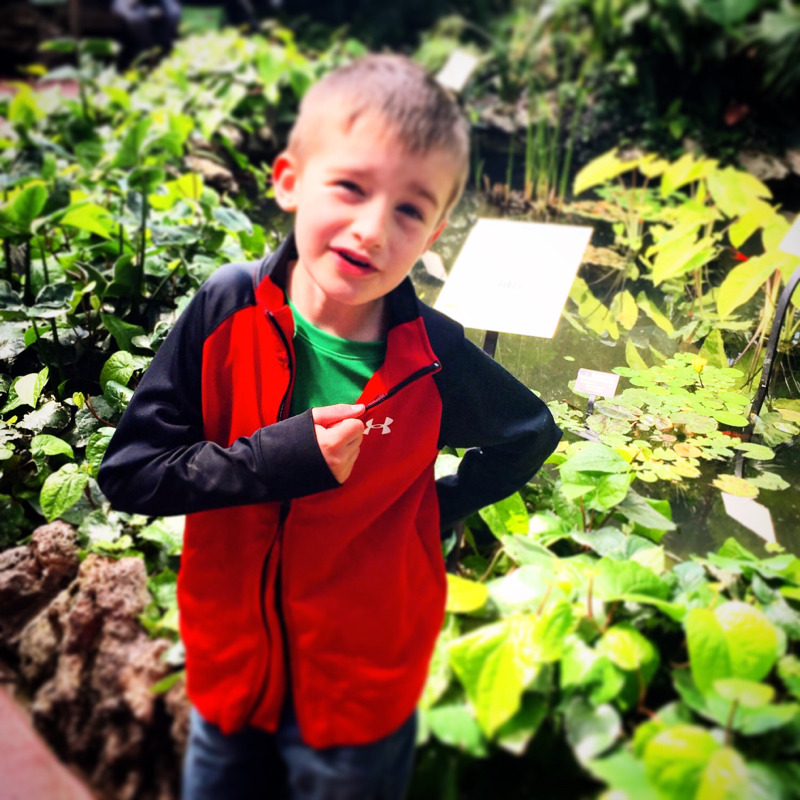I will venture out on a branch by saying that many, not necessarily most, but a lot of parents have an idea of what they want their child to be like, both as a little person and when they grow up. Of course, if you have these preconceived notions before spawning, you’ll laugh at people like you after you produce the offspring. Because everything you say you will do, or you will never do, or you will only do a certain way, or how you will instill values- goes bye-bye once you are actually in the mix of rearing a child. I often laugh at my pre-offspring self and what I thought certain behaviors or traits meant. I broke every rule that I outlined for myself except for one- I do not, nor will I ever lick a napkin and wipe my kids face. If I used this maneuver every time my kid had crud on his face, I may as well give him a saliva bath because he is never sans crud.
I have screwed up so many times as a parent e.g., yelling, losing my temper over sensory things that Fischer couldn’t help, or just flat out handled a situation poorly. I still agonize today over a terrible fit that I had when Fish was three over a situation I know now caused him anxiety. I realize though that you haven’t gone off the beaten path of successful parenting just because your kid hollers “bye doo-dee head” out the window as your SUV drives out of the roundabout after school. Of course, I’m not speaking from experience. All this really means is that your child is under the influence of other kids/social factors. Your child isn’t an un-kind child because he says un-kind things or does un-kind things (at times) - it just means that he is human and susceptible to social influence. I always tell Fischer that “just because you do naughty things sometimes, it doesn’t mean you are a bad kid”. From a professional and parental standpoint, I have learned a lot by making mistakes. Fischer learns in the very same way. Sometimes he has to be told to stop doing or saying something over-and-over, especially because of his sensory-seeking drive and anxieties concerning certain social situations.
My deepest conviction as a parent is to raise a kind and non-judgmental being. I definitely think futuristically, but this is a must-value that I work hard to instill in the here-and-now i.e., who he is now, as a 6 year-old child. Many parents focus on the end-game or their child’s chosen career path, which is often times linked to financial security. Religion and spirituality is a biggie for many parents. And then for others (me), personal values, experiences, and child-specific needs serve as a basis for upbringing.
Fischer does not always know that his behavior is less than desirable, or that he could potentially hurt feelings. He has a tendency to gravitate toward attention-seeking children when he gets deregulated, which drives me NUTS. I recognize that children who actively demand attention are typically doing so because they are either not receiving enough or they are conditioned to believe that they are entitled to excessive bouts of attention, thus carrying the egocentric mentality over into adulthood. Maybe even in some situations they have a narcissistic parent- you just don’t know. Or they just get nervous and want to make people laugh. Regardless of the reason, it makes me crazy when Fischer befriends a child who is inherently obsessed with being the center of attention and will say or do hurtful things to others to get said attention. Because then we run into him mimicking these children’s behaviors and trying to make them laugh in obnoxious ways in an attempt to ease his own anxieties. At his age, he does not recognize that these are the children that will most definitely NOT be funny in a few years. I have come to realize, that even when my child temporarily aligns with these children, he is extremely remorseful when we reflect on his behavior. His remorse for hurting others is tender and astonishing. And THAT is how I know that he is truly a kind and loving child.
My goal as a mother, is for my son to reach the top of Maslow’s hierarchy (enjoy peak life experiences and fully grasp his potential). Instilled with the values and tools necessary, he can achieve self-actualization and hopefully help others achieve this level of self-fulfillment. My hope is that Fischer’s kind heart matures to develop benevolence and an even deeper compassion for others. I want Fischer to have an insightful and in-depth understanding of enculturation; I want this understanding to run so deep that he is comfortable resisting enculturation in a healthy manner where stereotypes are defied and every human being is treated with kindness.
When Fischer first saw a photo of a same-sex couple on our refrigerator, he said, “Girls can’t marry girls.” I knew this topic would arise at some point in time, especially with a parent so deeply committed to human rights and with a belief that being kind is of the utmost importance. I didn’t want to call too much attention to it, so I just said, “sure they can, and look how happy they are”.
Currently, we’re doing this ‘daily acts of kindness’ thing at home. Each day he has to commit at least one act of kindness. For example, he told his grandma last week that she looked nice and healthy (we try to use this word instead of pretty). And yesterday, he brought our elderly neighbors 2 pieces of pie…there may have been a slight ulterior motive because he likes their bird, but the kid is only human! Last night when we were riding bikes, I posed a scenario to him and he told me how he would handle it. If one boy teased another boy because he wore a pink shirt: “some boys like pink and some boys don’t- but that’s their choice”. As an afterthought, without prompting, he said, “just like girls can marry girls, and boys can marry boys, and you don’t have to get married at all if you don’t want to if that’s what makes you happy. All people deserve to be happy, right mommy?” Talk about gooey heart melting stuff!
Aside from one toddler comment where he stated that he wanted coffee like the “brown man over there”, Fischer has never separated people by skin color. He rarely comments on physical appearance or on others weight. He went through a phase where he talked about tummy size, which raised my eyebrow; his teacher later told me that they were studying size comparison in math. He notices disability, but has compassion for these individuals.
Of course, this is a constant work in progress. Fish will be susceptible to other children and social pressure imposed by the media and stereotypes. I know that there will be many discussions on this journey of kindness. I know he will succumb to peer- pressure and we will have to discuss how his behavior makes others feel. Attempting to exclude girls in his play will continue for the foreseeable future (I suffered from the “girls have cooties” mentality). And I know that he will be met with confusion because many people have opposing beliefs on human rights. I am comforted in knowing that my child, in his core, believes that all people deserve his kindness. How lucky am I?


 RSS Feed
RSS Feed